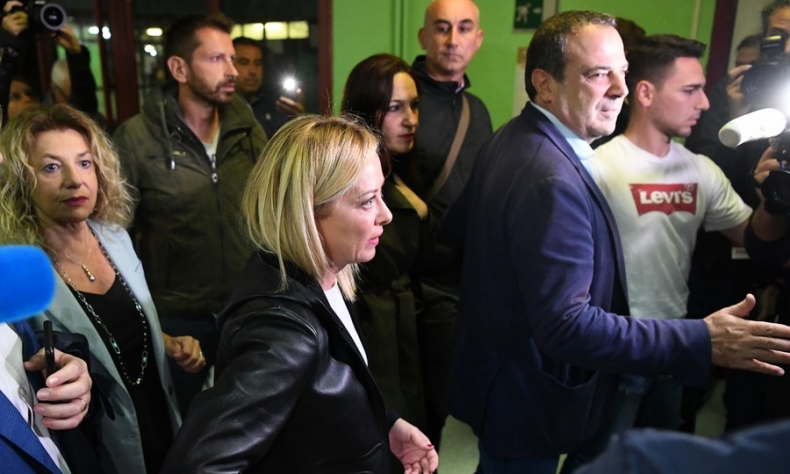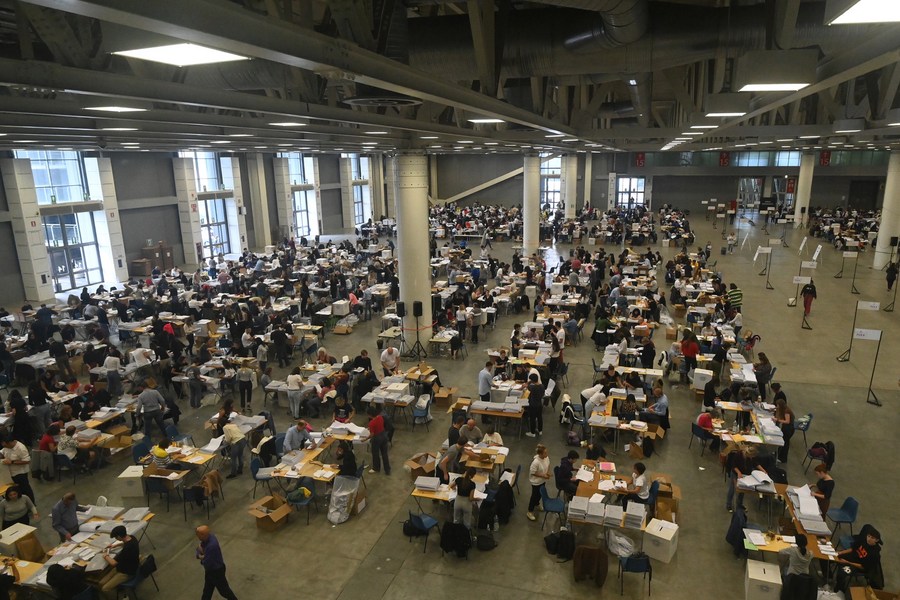Italy’s Election Highlights Europe’s Long-Term Woes

If the European Union wishes to become more resilient, it ought to rethink its economic policies, reassert its strategic autonomy as opposed to being subdued by the actions of third-party countries, and focus on attaining prosperity than the pursuit of other countries’ hegemonic goals and ideological crusades.
Earlier this week, the Italian parliamentary election concluded with Giorgia Meloni’s Brothers of Italy gaining the most seats. Meloni’s party, which is described as either right-wing or “far-right,” poses to be the country’s most radical government since the end of World War II, as Italy wrestles with long-term economic decline and widespread public dissatisfaction and disillusionment. For the European Union, the result is undoubtedly demonstrative of the significant challenges ahead as it grapples to keep unity amidst rising discontent.
Italy is one of the grandest and most admired countries in the world. Boasting one of the world’s most iconic and influential cultures, the peninsula has acted as a critical shaper of Western civilization, from the Roman Empire to the Catholic church. Italy is lauded for its architectural and artistic wonders, including the Colosseum in Rome, the canals of Venice and the leaning tower of Pisa. Its beauty is unparalleled. Yet all these historical marvels are diluted by an increasingly grim modern reality reflecting the country’s long-term economic decline.
In the year 2008, Italy’s GDP stood at $2.4 trillion. At the end of 2020, it sat at $1.89 trillion. The figures tell a 14-year-long story of decline, stagnation and hardship. The country suffered greatly as the global financial crisis accumulated in a debt implosion across the eurozone, which has strangled the Italian economy and other regional countries. The crisis subsequently created a rift between Rome and Brussels, forcing Italy to accept eyewatering austerity programs, which, as per Greece, inflicted severe economic damage on the country.

The result of Italy’s economic decline and widespread disillusionment with politics across the country amidst problems of corruption has been a surge in non-mainstream and alternative political parties. They primarily advocate an ideology of Euroscepticism, often even arguing for Italy’s separation from the euro currency itself. This has included the Five Star Movement party and, as seen now, the right-wing Brothers of Italy. None profess to oppose the European Union openly, but it is quite obvious that there is dissatisfaction with Brussels.
Nobody knows what direction Italy will take under Giorgia Meloni, given an energy crisis and continued public disapproval, which caused the collapse of the Mario Draghi government. Nonetheless, facing Italy’s highly fragile economic situation, it seems likely that she may end up on a collision course with the European Union as a whole, with Commission President Ursula von der Leyen threatening the country with “tools” if it takes the wrong course. To some extent, Italy’s position within the bloc will become more autonomous and assertive.
Yet, one thing is clear: Meloni’s victory in Italy represents a trend towards right-wing parties throughout Europe as a whole, reflecting the broad failure of its economic governance since that fatal year in 2008. With the cumulative impact of the energy crisis further squeezing people’s incomes, hammering businesses and creating more discontent, this trend will only get worse. It is a sign of the times for the European Union and will pose great challenges to its internal unity. If the bloc wishes to become more resilient, it ought to rethink its economic policies, reassert its strategic autonomy as opposed to being subdued by the actions of third-party countries, and focus on attaining prosperity than the pursuit of other countries’ hegemonic goals and ideological crusades.
 Facebook
Facebook
 Twitter
Twitter
 Linkedin
Linkedin
 Google +
Google +







